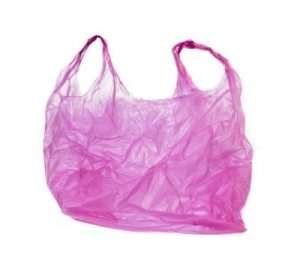Plastic pollution is a life-threatening issue as it contaminates the land and water resources.
Since it does not degrade faster, it leads to the ill health of humans, animals, and soil.
Both plastic and polythene are made from some combination of hydrocarbon chemicals. So they have similar properties like delayed decay of up to 40 years.
Hence, there is a large quantity of polythene accumulated inside the sea and river beds.
It is said to be causing great havoc to the lives of marine organisms and animals on the earth. Plastic also pollutes the valuable soil available for agriculture.
So, even large animals like whales die due to plastic consumption.

This happens due to heavy usage and careless dumping of plastic waste.
Some examples include covers (polythene bags), teacups, water bottles, healthcare utilities like saline bottles, syringes, etc.
Tips to Minimize Polythene Pollution
Avoidance of the use of plastic is the best way to minimize pollution.
But since we have made it inevitable, we need to follow other methods, like
Steps to be taken from the public side
1. Carrying cloth bags or other carry bags instead while going out shopping. Avoid taking poly bags from stores.
This can minimize the risk of polythene pollution to a large extent.
2. Carry water cans or bottles
While going to the office or traveling. Don’t rely on mineral water bottles unless no other options exist.
Also, try to use the bottles again and again instead of disposing of them after use.
This way, we can minimize the waste of plastic bottles and cause pollution.
3. Also, avoid burning plastic bags
These poly bags and other plastic materials. This causes an emission of harmful gases, causing air pollution.
4. Try to reuse or recycle
Instead of throwing off polythene bags, it is better to recycle and reuse them. This minimizes the need for the use of more plastic covers.
Steps to be taken from the government side.
There are instances wherein the government deliberately allows for polythene pollution.
1. Restrict the production of plastic bags
Previously, paper, jute, and other fiber bags were used for shopping and carrying. Currently, plastic bags have replaced them.
This is because they are cheap, light, and durable. But cloth-related bags also serve the purpose.
The government can encourage these bags by providing subsidies and restricting polythene bag usage.
Also, rules to avoid the production of thin plastic bags should be enforced.
2. Minimize the sale of plastic
Water bottles are sold in large numbers at trains and bus stops. This is a marketing tactic to make revenue.
But governments can encourage the supply of mineral water through plants so that passengers can avail the water into their own containers.
This will greatly minimize plastic pollution. Also, many liquid foods like tea, coffee, and milk are sold in plastic containers, which can be harmful to health.
3. Encourage recycling
For some items, the use of plastic and polythene is inevitable, like for syringes, medical pouches, etc.
Here, the disposed of ones should be encouraged for safe recycling and then sterilized.
Also, there should be restrictions on producing new plastic for regular use because the production of new plastic is cheaper than recycling old.
Many businesses tend to produce new instead of recycling the old.
5. Minimize the use of sachets
Small sachets are a part of marketing tactics. Sachets of shampoo, pickles, etc., help the customer to try before buying in large quantities.
However, companies focus on sachets as a way to increase sales because a pouch is more affordable than a bottle of shampoo.

These are disposable containers for one-time use and significantly add to plastic pollution spread and distribution.
6. Enhance the tax for plastic usage and generation.
This can help minimize plastic usage but, on the other hand, can contribute to inflation for consumers.
7. Regulate the thickness of bags
Thick plastic bags take a longer time to decay than thin ones.
But they can be recycled and reused.
On the other hand, using thin ones is inexpensive to the retailer but is difficult to reuse and recycle.
Safe disposable plastic is another solution to minimize plastic pollution.
Plastic pollution depends on the extent of production and usage on the one hand and the size of its distribution on the other.
The higher the distribution, the more the chances of soil and water contamination and vice-versa.
So, governments should impose rules for the safe disposal of polythene and plastics.
Disposal of plastic is done by degrading it under a specific set of microbes that can efficiently decompose it in 3 months or less.
Besides, an alternative could be aluminum foil tins or containers, which can be recyclable.
Frequently Asked Questions and Answers.
Why are single-use plastics bad?
Single-use plastics are those that are used once and disposed of.
The actual idea was to reuse them, but since it is hard to collect and recycle all of the disposals of single-use plastic, it has led to huge plastic waste accumulation and, thereby, pollution.
GOVT. SHOULD STOP THE POLYTHENE FACTORY.
It a nice idea but no one takes action only so I’m requesting to government to take strict action on people who throw polythene bags on road and some people throw it on beach at night and put it under the sand and ths information is so gud
Very informative!
Keep going Going green!
Well done studyread.com!